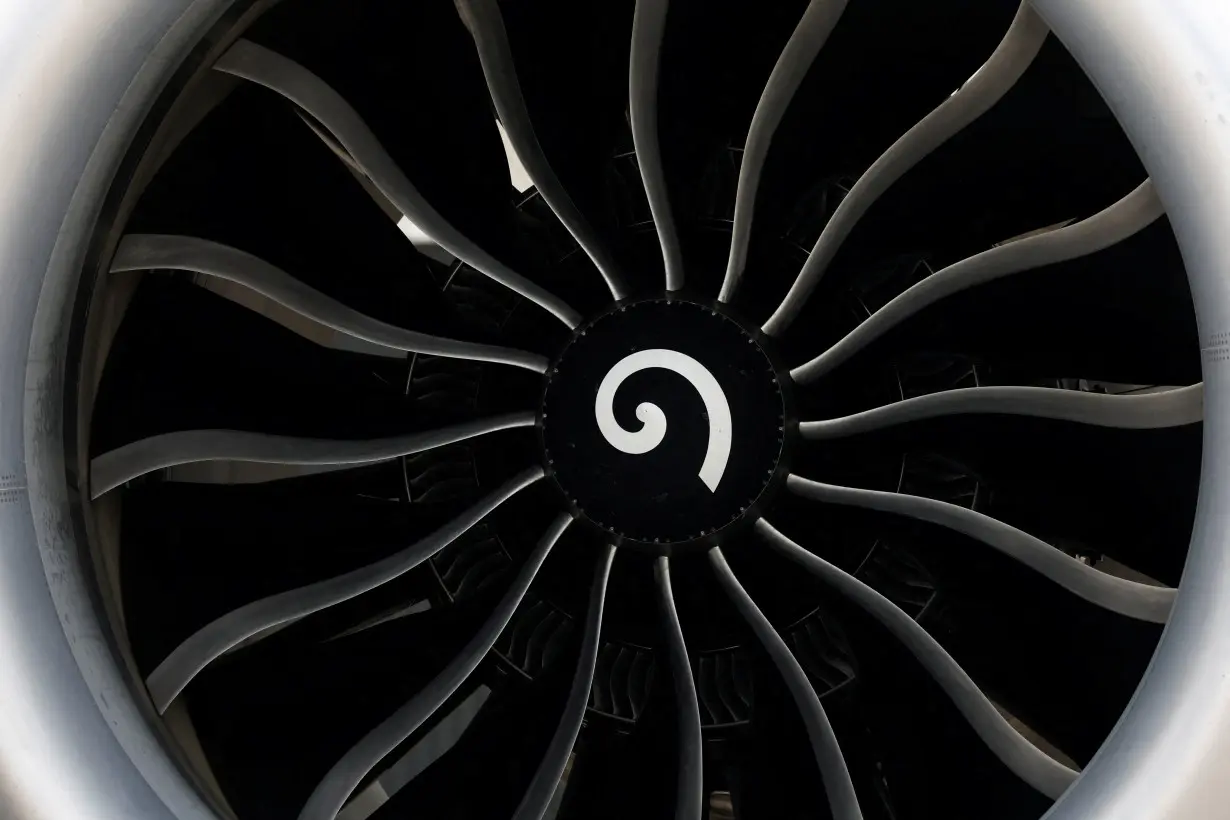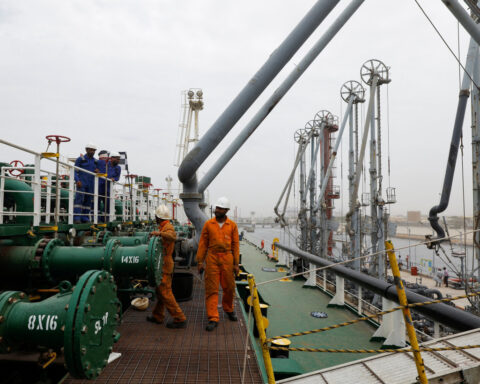By Rajesh Kumar Singh
CHICAGO (Reuters) - GE Aerospace on Friday unveiled a plan to invest more than $1 billion over five years to expand its maintenance, repair, and overhaul (MRO) facilities worldwide and reduce turnaround times for its customers.
There has been a surge in demand for after-market services as a strong rebound in travel and a lack of new planes due to production and engine issues has forced airlines to keep older jets in the air for longer.
However, persistent shortages of labor, parts and raw material have made it harder to keep up with customer demand.
As industry leaders gather at 2024's most prominent air show in Farnborough, England next week, engine repair delays will be one of the top items on their agenda.
Limited capacity at MRO shops has become a major constraint for the global airline industry. Some airline CEOs have called the engine repair delays a bigger problem than production issues at Airbus and Boeing.
GE Aerospace has set a goal to reduce overall turnaround time at its repair shops by 30% from a year ago. As part of the investment, the company will add more engine test cells and cutting-edge technology at its repair shops.
The company said previously it would invest more than $650 million this year in its manufacturing facilities and supply chain to ramp up production and in March, it told investors it planned to increase investments to reduce turnaround time at its repair shops. However, it did not disclose the dollar value of its planned investments.
The lion's share of the funds will go to MRO facilities for LEAP engines, which power Airbus and Boeing narrowbody aircraft. The company co-produces the engine type with France's Safran through their CFM International joint venture.
"Our customers are experiencing strong air travel demand," said Russell Stokes, head of GE Aerospace's commercial engines and services.
"We are investing...so we can meet their growing needs and keep their planes flying safely and reliably," he said in a statement.
After the pandemic, turnaround times at engine repair shops rose by 35% for legacy engines and more than 150% for new-generation engines, according to consulting firm Bain & Company. On average, it is taking two to three months for airlines just to secure an MRO slot, the firm said.
GE Aerospace, which became an independent company this year, has a dominant share in the engine market for narrowbody jets and enjoys a strong position in widebodies. More than 70% of its commercial engine revenue comes from parts and services.
The company said it will spend $250 million this year on upgrades. It will open a facility in September near Cincinnati, Ohio that will be equipped with a technology to detect chemical anomalies in metal parts that is also used to identify forged artwork.
(Reporting by Rajesh Kumar Singh; Editing by Jamie Freed)

 Germany sees meat exports to EU continuing after foot-and-mouth case
Germany sees meat exports to EU continuing after foot-and-mouth case
 Parliament speaker to lead Taiwan delegation to Trump's inauguration
Parliament speaker to lead Taiwan delegation to Trump's inauguration
 German economy contracted 0.2% in 2024
German economy contracted 0.2% in 2024
 Nokia signs multi-year patent license agreement with Samsung
Nokia signs multi-year patent license agreement with Samsung
 Irish parties secure 'comfortable majority' for new government
Irish parties secure 'comfortable majority' for new government
 Bayern Munich signs US youngster Bajung Darboe from LAFC
Bayern Munich signs US youngster Bajung Darboe from LAFC
 Novak Djokovic breaks a tie with Roger Federer for the most Grand Slam matches in tennis history
Novak Djokovic breaks a tie with Roger Federer for the most Grand Slam matches in tennis history
 China's RedNote: what you need to know about the app TikTok users are flocking to
China's RedNote: what you need to know about the app TikTok users are flocking to








